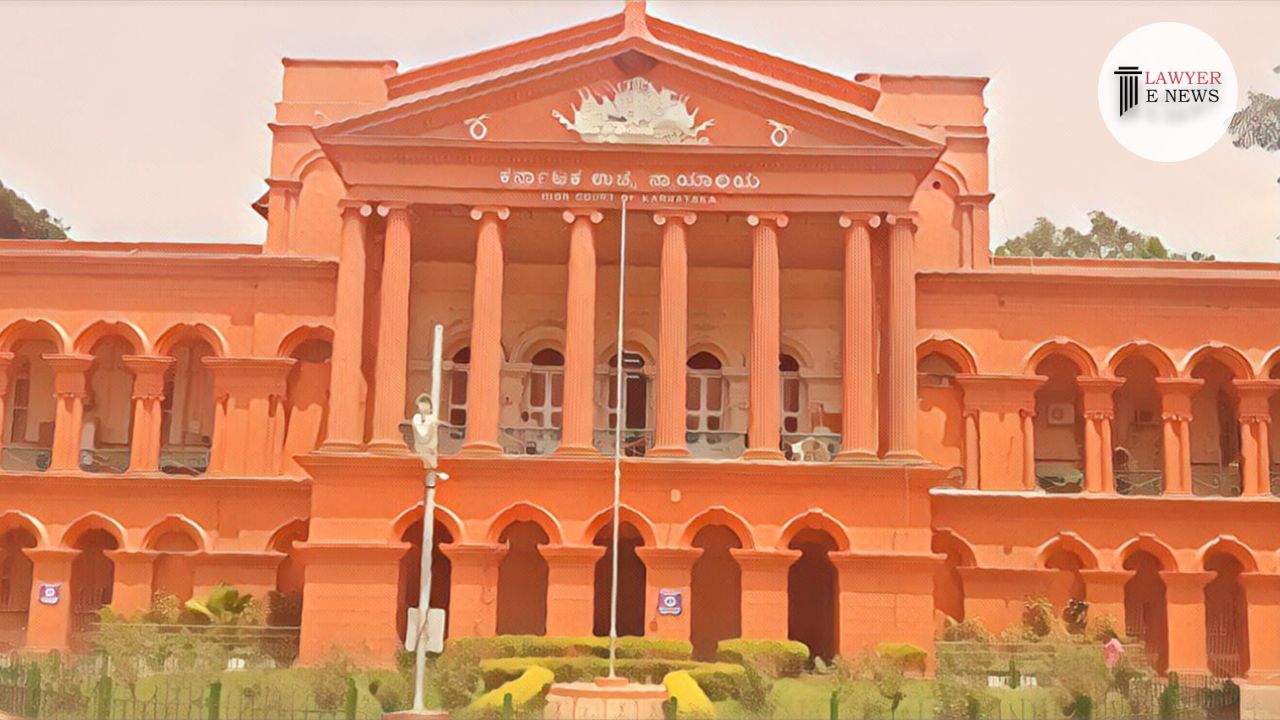-
by Admin
15 February 2026 5:35 AM



The Karnataka High Court has quashed the FIR against C.B. Prakash and S.B. Thriveni, the father-in-law and mother-in-law of the complainant, in a dowry harassment case. The judgment, delivered by Justice M. Nagaprasanna, emphasized the absence of specific allegations and overt acts against the petitioners, thereby deeming the proceedings an abuse of the legal process.
Facts of the Case:
The complainant, Meghana D.S., a software engineer, married accused No.1 on October 24, 2021. Shortly after the marriage, her husband moved to Germany for work, which led to the deterioration of their relationship. Meghana lodged a complaint against her husband and in-laws, leading to the registration of a case under Section 498A IPC and Sections 3 and 4 of the Dowry Prohibition Act at the Women Police Station in Tumakuru. The petitioners, accused No.2 and No.3, sought the quashing of the FIR, claiming no involvement in the alleged harassment.
Court Observations and Views:
General Allegations:
Justice M. Nagaprasanna noted that the complaint mainly revolved around the complainant’s issues with her husband, with no concrete accusations against the in-laws. "The entire narration in the complaint is the squabble between the husband and the wife. Whether it would be harassment or otherwise is not a subject matter of the present petition," the judgment stated.
Lack of Specific Overt Acts:
The court pointed out that the complaint mentioned the petitioners only in the penultimate paragraph and did not indicate any specific acts of harassment by them. "An omnibus statement cannot result in permitting investigation or a criminal trial against the father-in-law and mother-in-law on false allegations," observed the court.
Misuse of Legal Provisions:
Citing previous judgments, including the Supreme Court’s decision in Kahkashan Kausar v. State of Bihar, the court highlighted the increasing misuse of Section 498A IPC to settle personal scores. "It is a matter of serious concern that a large number of cases continue to be filed under Section 498-A alleging harassment of married women," the judgment noted, quoting the Supreme Court.
Legal Reasoning:
The High Court extensively discussed the principles of evaluating evidence in dowry harassment cases, reiterating that general and vague allegations cannot justify a criminal trial. "Permitting further investigation would become an abuse of the process of law and result in miscarriage of justice," the court asserted.
Quotes from the Judgment:
Justice M. Nagaprasanna remarked, "There are scores and scores of cases where allegations are made that have pointed overt acts by every member of the family which are sustained and further trial is permitted. There are even scores and scores of cases where every member of the family without rhyme or reason is dragged into the web of crime by frivolous complaints."
Conclusion:
The Karnataka High Court’s decision to quash the FIR against C.B. Prakash and S.B. Thriveni underscores the judiciary's commitment to preventing the misuse of legal provisions intended to protect women. By dismissing the baseless allegations, the court has reinforced the importance of specific and credible evidence in dowry harassment cases. This judgment is expected to influence future cases, ensuring that legal safeguards are not exploited for settling personal disputes.
Date of Decision: June 4, 2024
C.B. PRAKASH and S.B. THRIVENI VS THE STATE BY WOMEN POLICE, TUMAKURU, and MEGHANA D.S.
